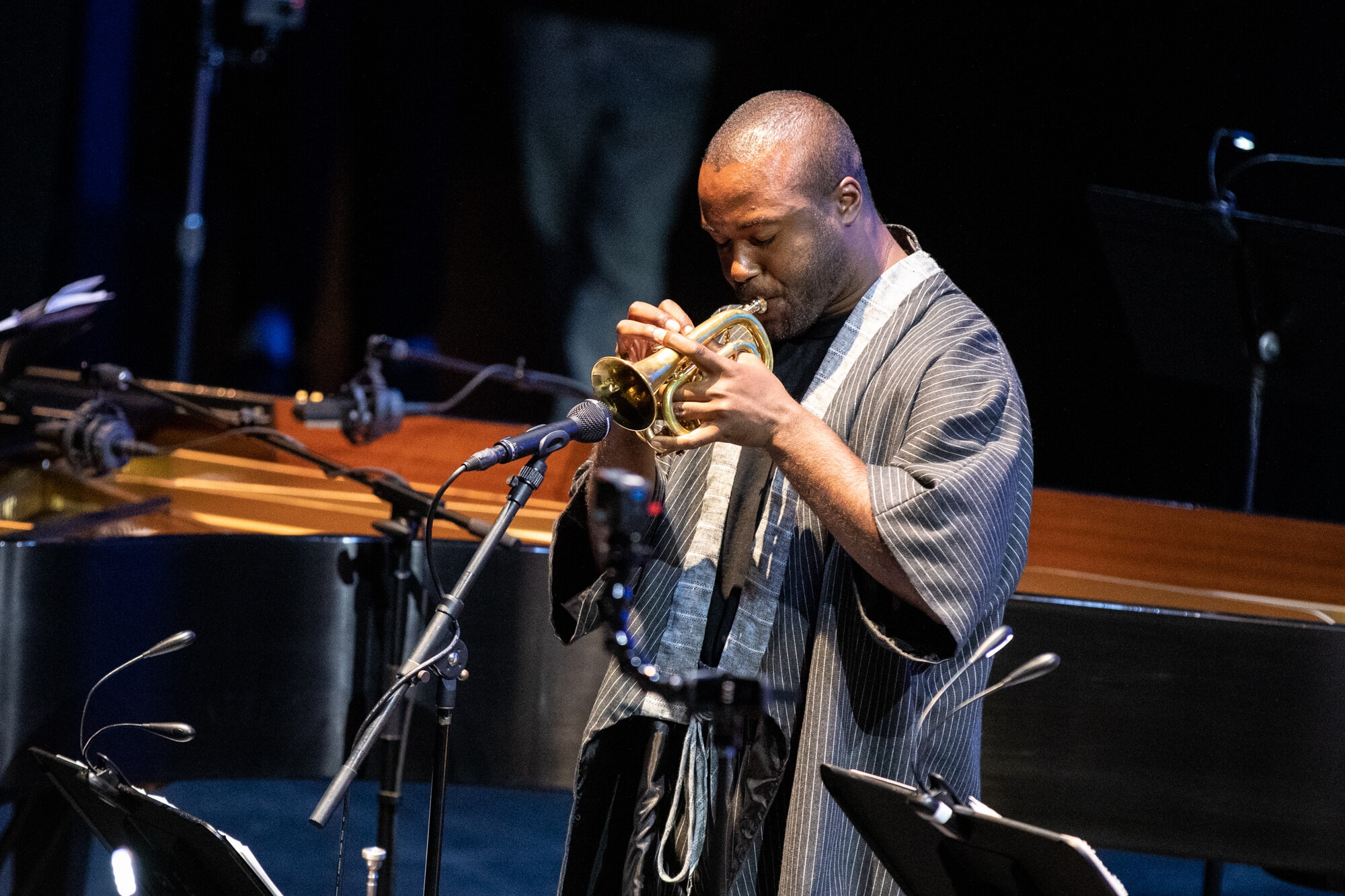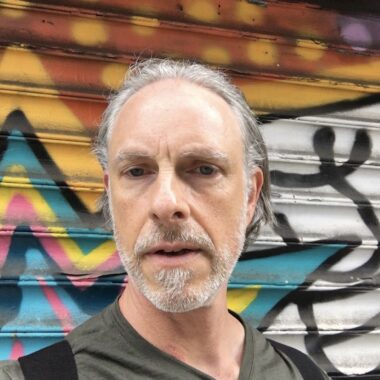In the winter of 2020, trumpeter Wallace Roney appeared one evening on WKCR. A few weeks later, he was dead, killed, by the coronavirus. As Sharif Abdus-Salaam, who had hosted Roney, said with some shock when reporting this, “COVID does not play around.” No it does not.
Nor, now with more than a million Americans needlessly dead, has it stopped playing around. We’re currently in an upsetting purgatory, with government from President Biden to Mayor Adams declining to do anything other than tell people to get vaccinated and occasionally send out testing kits. At best, only 2/3rds of subway riders have on masks, hardly any bar or restaurant asks for vaccination proof—as per Adams, who is close to doing as little in six months as Bill DeBlasio did in eight years—the CDC isn’t really keeping track of data anymore and encouraging people to be out in public when they still might be contagious (and since there’s so little mask wearing now, it’s a massive experiment in viral incubation), the blithe don’t care and the concerned are befuddled and anxious.
This is purgatory because something is going to play out in the end, but just what that might be, and when, is an agonizing puzzle. Democracy has been steadily disintegrating since Bush v Gore, late capitalism is corrupt and decadent, the police protect property and politicians and beat up (and worse) peaceful protestors and unarmed civilians. The confusion and pain of this is crucial to jazz because, as Abiodun Oyewole said while performing at Vision Festival 25 last year, this country should be a paradise. And it should, because it’s organized on the principles of political and social values, not on tribalism or language. And America produced jazz directly out of both those principles and the facts that savagely contradicted them, like slavery. Jazz and blues (and by extension all 20th century pop music) exist because a specifically African American culture produced them. Jazz and blues also aspire toward that abstract, social paradise, not a pure one but a real one, all kinds of people gathering in all areas of society, a mongrel nation that celebrates a mix, a creative mess, idiosyncrasy, and surprise, rather than a smooth racial, social, religious, and political conformity.
Government wants us to get together again, but absolutely not in that way, any way that might upset the established status quo, and way that might be improvisatory, that might be jazz. Government wants us to work and make money so we can consume and pay taxes. Adams and Governor Kathy Hochul want people to return to offices to work, not because the work matters but because vacant offices threaten the livelihood of commercial real estate developers who are the kind of people who get to talk with Adams and Hochul (and I can’t imagine either of them ever seeing this column, much less even listening to jazz. Here in the jazz capital of the world, Adams’ idea of culture is to go to a nightclub for a party to celebrate a new credit card.).
We are gathering against purgatory however, as best we can. We’re going to concert halls and clubs. Music is happening. And we’re also getting COVID, and so are musicians. Every day I see reports of musicians on tour—the one place they might make money—begging audiences to wear masks and announcing they have to cancel a tour because someone has come down with the virus at one venue or another. There’s some hazy but real dividing line between fans of musicians and live music, and fans of going out, and the latter seem to hold the capitalist notion that musicians are just one more exploitable commodity.
The jazz industry, the business such as it is, is not supporting these musicians very well. Some venues, like the village Vanguard, Birdland, and the Jazz Gallery ask for vaccination proof, but not the Blue Note or Smalls, and these are environments where people are eating and drinking, not just listening but going out, and doing their socializing in front of musicians. Now anyone can buy a ticket to the Blue Note and eat and drink and chat, and everyone there—musicians, staff, and patrons—just must hope that, at the very least, that person is being honest and sincere about how well they feel. That’s the design of Adams’ policy, which is to trust your health to the strangers who are nearest to you. That doesn’t strike me as paradisiacal.
Concert halls are a little different. All the major classical spaces require proof of vaccination and masks. BAM only requires the former, Roulette only suggests masks. This was noticeable during the Bang on A Can Long Play festival over the last weekend in April. At the BAM Opera House and associated venues like the Mark Morris Dance Center, the venues asked people to keep their masks on and most complied (although a few couldn’t be bothered), while Roulette only suggested people wear masks and, depending on the set, up to half the audience didn’t have masks. The interesting breakdown was how this seemed to correlate to the acts on stage. For the improvising jazz trio of pianist David Virelles, bassist Reggie Workman, and drummer Andrew Cyrille, the audience was heavily masked, while for Gary Lucas’ and Nona Hendryx’s Captain Beefheart band—a fabulous band playing fabulous music—maybe half the audience was masked. As a basic sign of respect for the musicians, this seemed especially odd, with the Beefheart band drawing an audience of elderly hippies and hipsters whose social insignia is a care for the world around them but, unsurprisingly, turned out to care only about themselves. Do they even listen to Beefheart, one of the best things this country has produced, someone who, despite the beef in his heart against the world, was trying to give to those around him?
There was something sad about this, doubled uncannily be seeing Wallace Roney, Jr. on stage for the closing festival performance in the Opera House. This was a new realization of Ornette Coleman’s classic The Shape of Jazz to Come album. There was an upfront band of Roney, Jr., alto saxophonist Lee Odom, pianist Jason Moran, guitarist James “Blood” Ulmer, bassist Jamaaladeen Tacuma, and drummer Denardo Coleman, with a small orchestra behind conducted by Awadagin Pratt. This wasn’t straight tunes from the album, but fantastic, skillful, imaginative re-compositions from the likes of Nicole Mitchell, Pamela Z, Craig Harris, Carman Moore, Nick Dunston, and other great Black composers. Dazzling in and of itself, I was drawn to Roney, Jr.’s playing. The first I’d heard him, his sound was beautiful and his improvising was thoughtful in the best way, like saying complete sentences before he spoke, then listening to how eloquent and shapely the grammar, syntax, and meaning were. There was the sense that he was responding to tragedy and a largely uncaring world by offering it something beautiful in return. I hope we deserve it.
Author
-

George Grella wrote the book on Miles Davis’ Bitches Brew. He write other stuff too. killyridols.substack.com/
View all posts
George Grella wrote the book on Miles Davis’ Bitches Brew. He write other stuff too. killyridols.substack.com/










